Tag Archives: Jessica Fletcher
Sprinkling Happiness Dust
How to Write Poetry and Live Poetically
Free E-Course Lesson 14
Chapter 4: Me, Myself, and I
Part 5: Beyond Self-Knowledge
Join now! Find details about this free E-course at Lesson 1.
♥
We’ve established—or at least I have and you’ve followed along—that it’s possible for me to see parts of myself, integrate these with direct and indirect feedback from people I respect, and come up with a rough idea of “who I am” at any given moment, which is my “self-concept.” (It’s important to remember, as Eckhart Tolle points out, that one’s self-concept is largely content, not essence.)
My self-concept might be positive (I’m a beautiful spirit sprinkling happiness dust everywhere I go), negative (I’m a slimy warthog), or somewhere in between.
Liking myself is not precisely happiness, but it’s close. Again, despite the fact that my knowledge of myself is limited, despite the fact that I can’t simultaneously “see” myself and “be seen by” myself — as much as possible, I need to live in harmony with myself.
How I Learned to Live in Harmony with My Nose
When the angels were putting me together on the Great Heavenly Assembly Line, somebody got some of the parts mixed up and I got the wrong nose. I have a very small face and a largish nose. Not only was it unsightly, it made kissing awkward and inconvenient. For a long time I didn’t like myself, nosewise.
It is not conducive to happiness to be filled with loathing and disgust every time you look in the mirror. My choices, as I saw them, were to (a) stop noticing my nose, (b) have my nose made surgically smaller or the rest of my face made larger, or (c) do things with makeup and face putty and other artificial means to achieve better balance among my facial features.
My sister solved the problem by commenting one day that our noses (hers and mine are similar) are Scottish. Having a Scottish nose appealed to me. It was part of my distinguished heritage.
I dealt with the kissing dilemma by developing a deft nasal-dodge technique and by choosing, as kissing partners, men whose noses are as prominent as mine.
♥
Summing up: I want to be happy. I am happiest when I am experiencing harmony within myself and in my environment – inside and outside, in other words. The choices I make have a lot to with the harmony I experience. To make wise choices, I need to know myself as well as possible.
The Unselfish Automobile and the Good Christian
When I was a child in Presbyterian Sunday school, I was taught that being a good Christian means being unselfish. Somehow I interpreted this to mean that my wants and needs were unimportant… that I had been put on earth exclusively to Serve Others.
This was a troubling concept, but it didn’t cause much of a problem until I was out of my teens. During one’s adolescence, it’s almost impossible not to be self-centered and self-aware. I think it’s a hormonal thing.
By the time I was twenty, I was married with an infant. Total self-abnegation is a poor basis for marriage and motherhood. I was a slave to my husband and my baby. I was unhappy – but wasn’t that okay, since God wanted me to Serve Others and to be Unselfish?
At that time I owned a 1960 Mercury Comet. Like me, my Mercury had been created to serve. It was unselfish. But in order to serve, its basic needs had to be met. It needed fuel. It had a hydraulic clutch (or something) that needed to be filled from time to time. It needed regular oil changes. It required maintenance and occasional repairs.
Eventually I learned that I too required maintenance and occasional repairs. Without receiving, I became unable to give.
Over the years, I have learned that giving and receiving are inseparable. Think of a lake that has an outlet – a stream flowing out of it – but no source of fresh water. Soon the lake will dry up. It will no longer be able to sustain fish or waterfowl. It will have no beauty to be enjoyed. It will be unable to cool and entertain swimmers on hot summer days.
When I discovered that I, like the Mercury Comet and the lake, had needs that could not be ignored, I learned a great deal about myself and about how the world works. Knowing myself better, I took better care of myself. I made wiser choices. I was happier, and so were the people around me.
I now believe that people – women and men alike – should always treat themselves as if they are pregnant. Caring for oneself beautifully and wisely during pregnancy is, as it happens, the best way to care for one’s developing fetus. And I believe that there is a sense in which we are all, always, “pregnant” with our future selves. We carry inside us the seeds of what we will become.
You are who you pretend to be
You must be the change you wish to see in the world. —Mohandas Gandhi
Through self-knowledge we can achieve temporary equilibrium. Sometimes equilibrium is enough. Constant challenges become struggles. We need rest between stretches. This is why God created day and night, summer and winter, cycles of all kinds.
Ultimately, however, as living things we must grow or die. And we have some—though not absolute—freedom to choose what direction our growth will take.
The antihero of Mother Night, one of the late Kurt Vonnegut’s lesser-known novels, is Howard W. Campbell, an American expatriate living in Germany before World War II. An ultra-deep-cover American agent recruits Campbell to spy for the Allies and, posing as a Nazi propagandist, to encode his discoveries in his radio broadcasts. When Campbell agrees, he is warned never to contact the agent.
Campbell, it develops, is a very good spy and transmits a great deal of valuable information to the Allies. He is also a very good propagandist.
After the war, Campbell returns to the U.S. with a new identity but a lingering angst. Many years pass before he is “outed” and prosecuted as the notorious traitor and brilliant Nazi propagandist. Desperate, Campbell seeks out the agent who recruited him—the man who alone can vindicate him.
The agent agrees to corroborate Campbell’s story—that he was acting as a patriot, transmitting Nazi secrets for the benefit of the Allies. Campbell is off the hook, but as they part for the last time, the recruiter makes this cryptic comment: “You are who you pretend to be.”
About six months ago I began to notice that my two-year-old granddaughter repeated everything I said, posing it as a question, trying the words and the phrasing of them on for size. We were at her bedroom window, and I was holding her up so she could see her mom outside, helping load a pile of dirt into a pickup truck.
Ava: What’s Mommy doing?
Me: She’s helping those people load that dirt into their truck.
Ava: Helping dose people load dat dirt into dehr truck?
Me: Yes. It’s nice, clean dirt, good for gardens.
Ava: Nice, clean dirt, good for gardens?
I also noticed that Ava would dog her dad’s footsteps, trying to imitate his stride. And I saw her smile with one side of her mouth, the way her mother does sometimes.
I wrote the following poem for my sons as a Christmas present, framing it along with photos of their two-year-olds (one, Ava, obviously is a girl; the other, Ryder, is a boy; I changed the gender as appropriate in the versions of the poem I used for each son):
He Will Be Like You
He watches every move you make—how else
to learn but imitate?—the way you speak and
move through life, your head held high to find
your polestar in the sky and take no notice
of the grime beneath your feet. Thus will he learn
serenity and find his place above the petty and the
mean. Then from you will he learn to soar, and
know that there is more than senses can perceive,
and all is as it needs to be this moment in the
universe. He watches you embrace adversity and
knows that life is hard, but necessarily, to
grow, to shine, to gain the victory. So you pursue
your course on higher ground, and not for him
alone, but to regain your innocence; spurn guilt,
have no regret; for Jesus said: We learn and then
move on, for God accepts the consequences in
our stead—repentance, then forgiveness, then the
grace that takes away the blemish. That is, after
all, the Gospel, and its promise is: All things are
possible; all souls have
wings.
To a great extent, children become who they are by imitating, which is a form of pretending. Adults do too, though not usually as dramatically. My friend Janet moved from Texas to Nebraska many years ago. Her once-thick Texas accent is faint now, except when she’s tired or excited. Another friend, Carol, is a New Hampshire native who has lived most of her adult life in Arizona, yet she sounds as if she has just arrived from New England.
I confess that, in difficult situations, I often pretend to be someone whom I admire and who I know would handle the problem skillfully. When tact and maturity are called for, I am Jessica Fletcher of the television series Murder, She Wrote. When insouciance and utter self-confidence are necessary, I am Miss Piggy. When a situation requires merciless and quick decisiveness (rather than my innate tendency to examine a problem from every possible aspect), I am Doctor Laura.
This isn’t hypocrisy, nor is it sham. Whatever it is in me that admires Miss Piggy is like her. I can practice being insouciant and sassy just as I can practice sitting up straight instead of slouching.
“Knowing our limitations” doesn’t mean we shouldn’t keep testing them if there is an advantage to doing so—especially when what were once our strengths no longer work for us. When I was young and cute and smart and a bit brash, I had instant credibility on the job. It came as a huge shock when, in my bejowled mid-fifties — and smarter than ever — I took a new job and found that I had to prove myself from scratch.
This is why we have to keep learning, growing, and adapting—doing what we do well to remain confident, but also stretching, “reinventing” ourselves if need be, to adjust to changes in ourselves and our environments.
Assignment 14.1: An exercise in allegory—You in a box
Imagine that you have always lived alone in a box that has no windows or doors. The box is flimsy — you could easily kick a hole in any wall — but breaking out of your box would never occur to you. As far as you know, the inside of the box is all there is.
Everyone on your planet lives in a box pretty much like yours. There are light and air in these boxes, but each of you can see, smell, touch, and taste only the objects inside your box. The only stimulus that reaches you from outside is noise. You can hear the voices of your neighbors, though of course they have little meaning for you.
So that’s the scenario. How does it feel? Fun? Boring? Restful? Safe? Scary?
Pretty dismal, I’d imagine, for those of us who don’t live exclusively in boxes (as far as we know) — but perfectly natural to the hypothetical you, the You in the Box, because it’s all you’ve ever known. You have a comfortable bed, plenty to eat, and room to move around.(1) You have several ways to occupy your time: suddoku, maybe, or houseplant gardening, crocheting, shooting baskets….
The contents of every box are similar but not identical.(2) For one thing, all the stuff in your neighbor’s box, including your neighbor, is mauve, whereas you and your possessions are sky blue. But the color of your neighbor’s environment is irrelevant: You don’t even know you have a neighbor, nor could you understand the concept of color. In your world, there’s no such thing as “not–sky blue” or “not–color.”(3) There is no context for your perception of color.
Quickie exercise: Try defining or describing something without giving it context; that is, without comparing or contrasting it to something else. (Hint: Can’t be done. The unknown can be imagined only as it relates to the known.)
What Is a ‘Julia Roberts’?
My niece’s wonderful husband, Adam, is tall. He has many other fine attributes, but tallness might be the one you’d notice first, especially if my wonderful niece Chris were beside him; there’s a difference of eighteen inches, give or take, in their height.
Now, when I say “Adam is tall,” there is no need for me to add “…compared to other people but not compared to cypress trees.” The context of Adam’s tallness (people, as opposed to giraffes) is understood.
But if Adam were several stories tall, imagine the employment possibilities! More to the point—the words “Adam is tall” would be inadequate for even the most basic physical description. To give you an idea of Adam’s appearance, I would have to provide context. Even saying “Adam is the tallest man in the world” wouldn’t suffice. You’d be thinking, maybe, nine feet, tops. I’d have to say, for example, “Adam is taller than twelve average-size men standing on each other’s shoulders” for you to even begin to get the picture.
Likewise, if I tell you that my daughter looks like Julia Roberts, and you have no idea what Julia Roberts looks like, then I have to find another way to describe her appearance, comparing her to people or things you’re familiar with.
You’re drinking lemonade and I’m thirsty, but I’m leery of lemonade, never having tasted it. “You’ll like it,” you say. “It’s sweet.” But “sweet,” in my limited experience, describes my Aunt Persis’s homemade fudge, of which you, more’s the pity, have never known the bliss. I happen to have a piece of that fudge and I’m willing to share it with you. You say, “Ugh! It looks like mud.” I reply, “Well, your lemonade looks like pee.”
For you to know the joy of Aunt Persis’s homemade fudge, and for me to quench my thirst, we have to find ways to describe “lemonade” and “fudge” in terms we both understand. Most likely, we’ll use similes:(4) Lemonade is tart, like a persimmon. Fudge is chewy, like the meat of a ripe walnut.
The point here is that nothing is inherently manifest to the rational mind. In the realm of logic, nothing reveals itself or discloses its identity absolutely: not people, not inanimate objects, not concepts such as sweetness. We can conceive of them only in terms of their similarities to other things—in effect, as metaphors.(5)
None of us has an absolute identity that exists in a vacuum. It might be said that in all of existence God is the only nonmetaphor. Only God is simply “I am.”
You in a box (continued): Let your imagination run wild
Having spent your entire life inside this sky-blue box, your perceptions of yourself and the universe are likely to be very different from those of a person who has lived as you and I have lived — walking into and out of each other’s houses, freely conversing face to face, being aware of a great variety of colors, shapes, sizes, and phenomena. Take a minute to think about how the You of the Sky-Blue Box might be different from the “actual” you. For example,
-
If you hear voices from the mauve box next door, you might not perceive of those voices as coming from “somewhere else.” You would have no concept of “outside the box.” The box would be your entire universe.
-
You probably wouldn’t perceive the voices as coming from other beings like you. You might take the voices for granted and not wonder about them at all.
-
You might not even perceive a difference between your “self” — your identity, as distinct from your physical body — and the objects in your box.
-
As communication with other people in other boxes evolves and you develop a language, agreeing upon words for things like “bed” and “kneecap,” you discover that the voices are relating experiences different from yours. For the first time, perhaps, you have a sense of yourself as one among others.
-
Or perhaps, given what we know or suspect about collective consciousness, might you not somehow be aware of the nearness of others like yourself?
Exercise: You of the Sky-Blue Box (choose one of the following)
-
Write a scenario, similar to those in the bullet points above, that might describe how the You of the Sky-Blue Box would be different from the “actual” you.
-
Describe what it might it be like if you woke up one day and your refrigerator were yellow instead of sky blue.
-
Describe how your reaction to the change in color might be different if it were gradual rather than sudden.
-
Describe how you might feel…
if an opening to the outside appeared one morning, and there were nothing outside but light — not unlike the light in your box — but you were able to walk around your box and see it from the outside
and
if the next day other windowless, doorless boxes appeared
and
if the day after that you saw that trees and flowers had grown among the boxes. (Do you think they would look beautiful to you? Or would they frighten you? Having led such a sheltered existence, would you want to explore them, or perhaps try to hide from them instead?) -
Think of other possible changes in your Sky-Blue Box universe and imagine different ways in which you might react to them.
Describe one such variation.
How would your answer to the question “Who am I?” change?
How would your perception of the universe change?
What would you do differently in response to your new perceptions of yourself and the universe?
Assignment 14.2: Defining figures of speech
Define, in your own words, allegory, metaphor, and simile. Draw your definitions from at least two sources. Summarize the differences among allegories, metaphors, and similes.
Separating and reuniting
The little story “You in a box” is a very rough allegory for human personality development. When a fetus enters the world as an infant, the physical separation from the mother is the beginning of a series of physical and psychological separations.
These separations are exhilarating because they lead to freedom. They are terrifying because they lead to isolation.
I believe that
-
without God, to be completely free is to be completely alone, whereas
-
with God, freedom leads inevitably to relationships based on love rather than need and fear.
(1) Your source of food, fresh air, and other necessities is outside the scope of this allegory. Sorry.
(2) I know this because I am the Omniscient Narrator.
(3) If you ever want to give yourself a really bad headache, try to invent a new color. It’s impossible. All you can do is imagine different combinations of red, yellow, and blue, plus black and white. Yet surely, somewhere “out there” in the vast unknown, there are other colors, obeying laws of physics yet to be encountered.
(4) simile (noun): a comparison of one thing with another using the word like or as. [A particular type of software] is as ugly as a sack full of penguin guts. —Bruce Sterling
(5) metaphor (noun): a figure of speech in which two things are compared by saying one thing is another. Bliss was it in that dawn to be alive,/ But to be young was very Heaven! —William Wordsworth, The Prelude
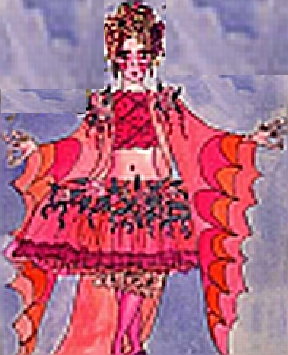
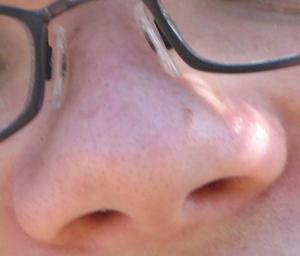

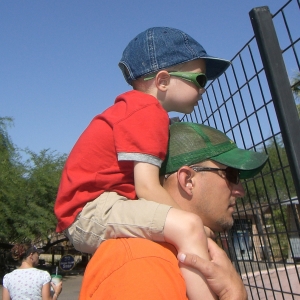
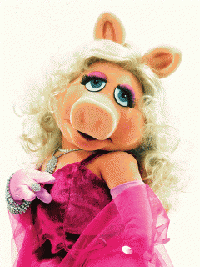

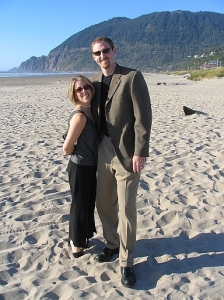

Recent Comments